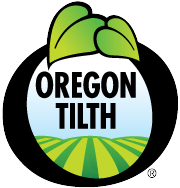OVERVIEW
We know how important health is for a vibrant community. No one should ever spend a moment sick because of man-made pollutants in our environment. Unfortunately, many of the harmful materials used to manage our food production and public spaces end up in the worst place imaginable: us.
The Challenge
Most pesticides have a poor resumé. The byproduct of chemicals used during World War II, these toxins were widely adopted by agriculture as a modern means to fight pests, weeds and other destructive organisms to crops. Additionally, over 78 million homes and public greenspaces use pesticides that commonly cause health defects in humans. In fact, we use more pesticides on our lawns than our farms, leading to 90 percent of urban waterways with chronic levels of toxins.
Accompanying environmental harm, studies show that exposure to many pesticides trigger severe health problems in people. From cancer to nerve damage, pesticides cause damage to endocrine and immune systems. One report showed that babies exposed to high levels of common pesticides in the womb have lower I.Q. scores than their peers by the time they reach school age.
Continuous use of toxic pesticides and herbicides has led to increased resistance, often resulting in more frequent and higher doses on crops as well as development of stronger chemicals. And with reports showing that more than half of pesticides approved since 2010 have not been subject to full safety review, we’re at risk more than ever before from exposure to the many pesticides being used on food and in our communities.
The Opportunity
It’s not complicated. Certified organic food reduces our exposure to pesticides. And organically managed landscapes show that our greenspaces can still be beautiful places to play, connect and be free from the health risks of pesticides.
One recent study revealed that eating an organic diet cut pesticide exposure for adults by 89 percent. Parents continue to be leading advocates for environmental health, citing a desire to avoid toxins, antibiotics and genetically modified organisms as top reasons to choose organic foods. Whether it was helping jumpstart the Organic Materials Review Institute to find safer alternatives for farm management or partnering with Oregon State University Small Farms to develop tools for organic farmers, we believe that a coordinated research effort can make food safer for planet and people.
We know the best approach to public health is prevention. And with millions of acres of farmland and greenspaces managed with pesticides, we’re adopting partnerships to support work on-the-ground all the way up to policy solutions that better reflect how food, environment and public health can work together to keep us well.
